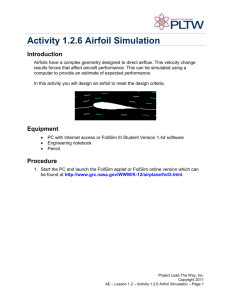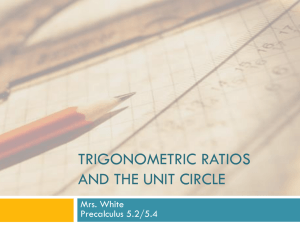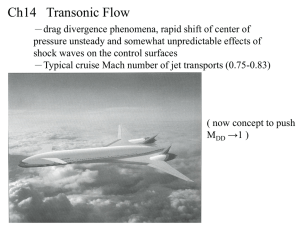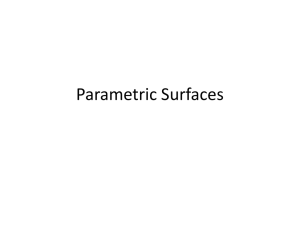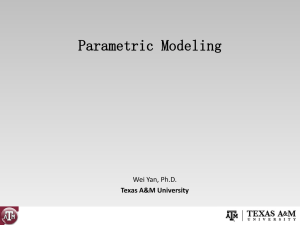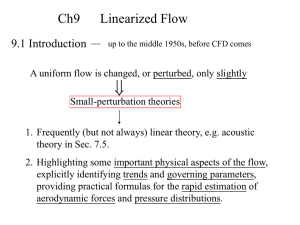PowerPoint Presentation - HowFliesTheAlbatross.com
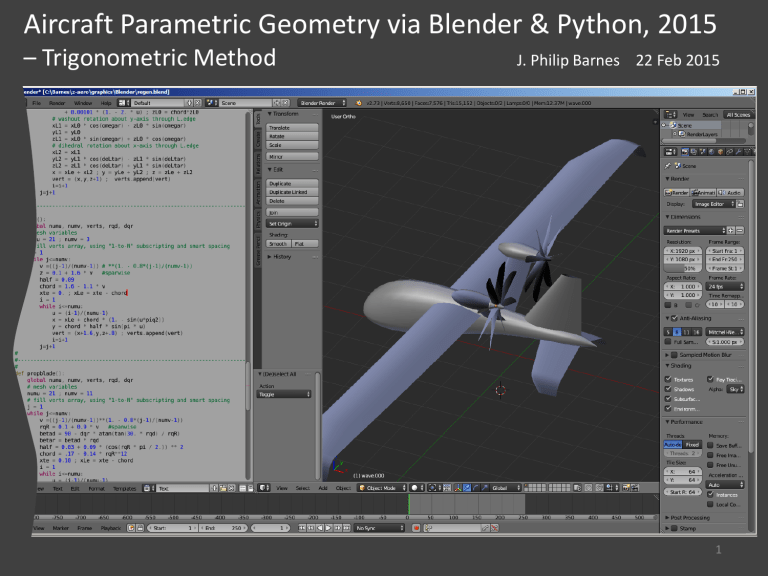
Aircraft Parametric Geometry via Blender & Python, 2015
– Trigonometric Method
J. Philip Barnes 22 Feb 2015
1
Objective, rationale, and study topics
Objective:
Define (initially) airfoil geometry with trigonometric functions
Trig. functions are simple, powerful, and computationally efficient
Rationale:
Return to basics before implementing more-sophisticated methods
Theory before application to enhance understanding & outcome
Study topics (see next slide):
Generate library of modified trigonometric shapes
Parametrically approximate a given airfoil via X(u) and Z(u)
Solve for the leading-edge-radius-to-chord ratio (R = r/c)
Include finite trailing edge thickness
Consider user inputs and interface to assist and/or automate
2
Trig parametric airfoil parameters cusps: Low-amplitude upper/lower inchworm with high-exponent
Option 3:
“ g
” adder shifts max thickness aft
' x = 1-(1g )Sin( p u)+ g Sin(3 p u)
Z = haLf_edge * (1 - 2 * u) _
+ Ziu * Sin(Pi*(1 - u)^eiu) _
- ZiL * Sin(Pi*(0 + u)^eiL) _
- Zcu * Sin(Pi*(1 - u)^ecu) _
+ ZcL * Sin(Pi*(0 + u)^ecL) _
+ bbb * Sin(Pi * u) _
+ dZf * Sin(twoPi * u)
Option 2: upper & lower
“Inchworms”
(not to scale)
Option 1: Sinewave backbone
3
Trig parametric airfoil example 1 ~ basic half/full sine wave simple half wave simple full wave finite trailing edge
4
Trig parametric airfoil example 1A ~ upper/lower inchworms
“old fashioned” max thickness location ~ next up: move thickness aft
5
Trig parametric airfoil example 2 afterbody too thick ~ next up: apply upper/lower “cusps”
6
Trig parametric airfoil example 3 modern thickness distribution ~ next up: apply camber
7
Trig parametric airfoil example 4 contemporary shape ~ next up: reduce pitching moment
8
Trig parametric airfoil example 5 high-performance laminar foil, c
M
< 0 ~ next up: zero pitching moment
9
Trig parametric airfoil example 6 ~ C m
=0 zero lift angle and pitching moment largely set by last 5% of meanline
10
Leading edge radius calculus study
Prove: R= r/c = (dZ/du) 2 /(d 2 X/du 2 ) @ u=0.5
Thus: dZ/du=[R d 2 X/du 2 ] 0.5
@ u=0.5
11
Parametric Fuselage – trig. approximation cubic-spline basis
Trig. functions provide 99% desired result with just 1% of computation
12
Sample Application of Method: “Regenosoar”
13
